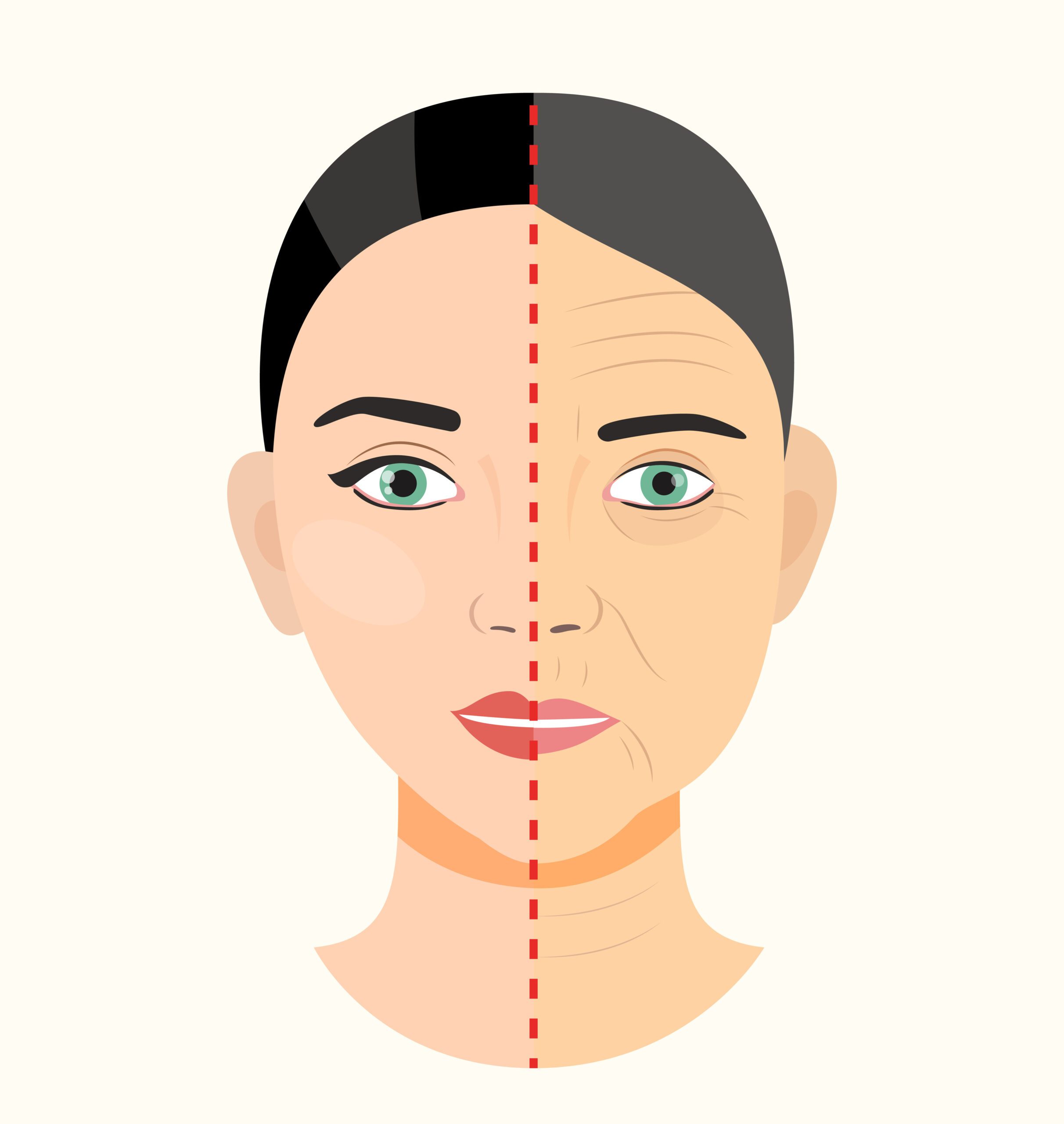
Is it possible to stop aging in its tracks? While it’s true that the many ways aging can affect your body and mind have a lot to do with genetics, the good news is that some of those changes can be delayed—even prevented or reversed. Modern medicine and a better understanding of alternative remedies have allowed us to be better able to detect age-related diseases and conditions early and treat them more effectively. Keep reading to discover the 10 most important anti-aging supplements and find out what you should be doing to keep yourself youthful well past retirement age.
As you get older, your body tends not to function like it did when you were in your twenties. That may be of no surprise to you, but why does it happen? Well, as you enter your late 30s or early 40s, hormone levels drop and your body’s natural ability to repair itself gradually declines.
And that’s what we’re all afraid of — the redistribution of weight, saggy skin, and loss of strength, agility, memory, and vision – all things that we associated with our grandparents and assumed were just a natural part of growing older.
But now, it’s possible that you can not only live longer than your grandparents, but that you can live better. The most important and effective preventative measure? Healthy lifestyle changes.
Here are four things you should definitely incorporate to help prevent the effects of aging:
Exercise daily. It’s not necessary to go to a health club every day, but you do need to get moving and challenge your body—whether it be a vigorous walk around the neighborhood, taking a dancing class, playing a round of golf, or using a resistance band at home. Shoot for at least 30 minutes of active movement, and be sure to incorporate some form of weight/resistance training as well as plenty of cardiovascular exercise.
Avoid stress. Stress takes a toll on the body over time, making you more likely to have high blood pressure and heart disease and also more likely to take longer to recover from illness or surgery. Additionally, stress has a detrimental effect on brain functioning and possibly contributes to declines in problem-solving and memory. What’s more, the toll of stress on the appearance is well-documented—grey hair, wrinkles, and dark circles under the eyes are just a few of the ways stress can make you look years older.
Eat a healthy diet. Cut out saturated fats, fried foods, refined sugars, and excessive sodium, and eat more fresh fruits and vegetables, whole grains, and lean sources of protein, such as skinless chicken breasts, flank steak, and eggs. Also, be sure to drink plenty of water, which will keep your body hydrated from the inside out.
Take vitamins and supplements. if your diet has deficiencies, you need vitamins and supplements. The 10 following nutrients contain powerful anti-aging properties and should be a regular part of your daily diet:
You can find out more information about each of these supplements on InsidersHealth.com! By incorporating the above healthy, anti-aging tactics into your daily lifestyle you will not only live longer, but you will be able to get the most out of those added years.

A new study suggests that a widely used sugar substitute found in diet sodas, chewing gum, and low-sugar yogurt may elevate insulin levels. This could increase the long-term risk of heart disease. “Artificial sweeteners have infiltrated nearly all types of food, making it crucial to understand their long-term health effects,” said Yihai Cao, senior author […]

Diet Coke has long been a fan-favorite among soda lovers who want a fizzy, guilt-free alternative to traditional soft drinks. While its zero-calorie, zero-sugar label makes it seem like a healthier option, the reality is far more concerning. Despite its undeniable popularity, Diet Coke’s nutritional profile has raised red flags among health experts for years. […]

New study shows that embracing an anti-inflammatory, plant-forward diet can support cognitive function and help reduce the risk of dementia. What You Eat Shapes Your Brain The food you eat doesn’t just impact your body—it also affects your brain. Research suggests that eating an anti-inflammatory, plant-based diet can help improve memory, focus, and overall brain […]